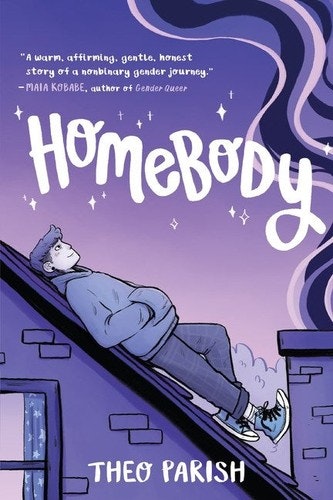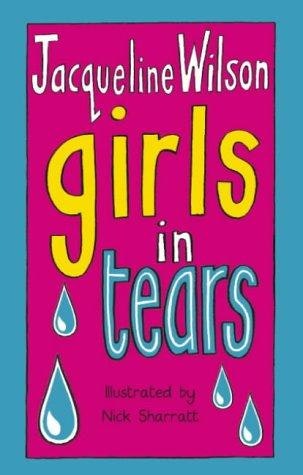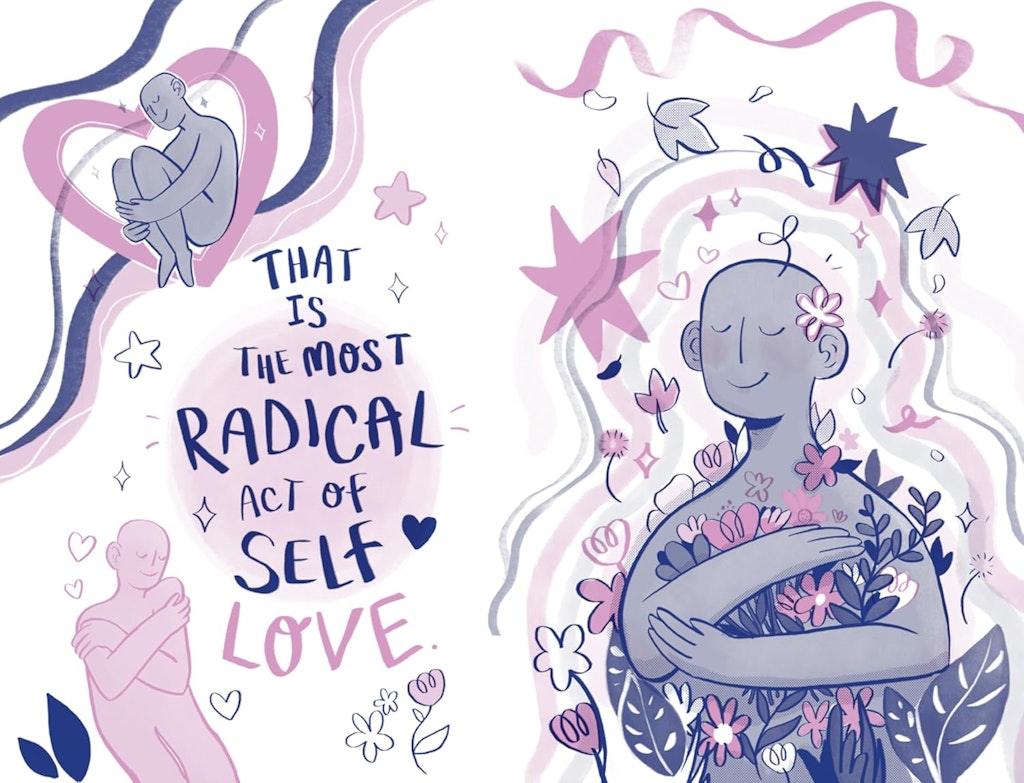There’s nothing older than a moral panic about the young. The latest involves the Netflix mini-series Adolescence, with its plot that hinges on the evils of Instagram,
Adolescence is drama, not an in-depth documentary. Yet the show has received more scrutiny from our Prime Minister than the Assisted Dying Bill. There’s been sombre tweeting from Starmer and a Number 10 press release, “Downing Street opens doors to Adolescence creators for vital discussion on protecting our children.”
This fits with the Government’s wish to tighten its grip on the internet. It may have been Conservatives who brought in the 2023 Online Safety Act. But it is Labour who encouraged police investigations and custodial sentences for those who post misleading images on Facebook and hasty words on X.
By contrast, politicians are positive about libraries. At a 2024 Libraries Change Lives event, the MP Florence Eshalomi reminisced fondly about studying for GCSEs in a Brixton library, about the opportunities the service offers her teenage constituents. “The library is a fantastic space for those young people.”

It would be near-heresy to suggest that libraries, these cosy spaces, those agents of positive change, are complicit in harming the young. This may explain why the announcement of this year’s Carnegie Medals shortlist announced has slipped — so far — under the radar.
The Medals are awarded by librarians to those who create “outstanding reading experiences” for children and young people. Past winners include CS Lewis and Shirley Hughes. There is one for writing and another for illustration. Homebody, Theo Parish’s memoir in graphic novel form, is on the latter shortlist.
In the niche world of kids’ publishing, Homebody was a big deal from the start. There was a six-way auction before Macmillan secured the rights in 2022. Trade paper The Bookseller covered this news, adding that the book sees Parish “explore their gender identity and relationship with their body.” When Homebody came out last year, even cash-starved library authorities ordered a copy or two. Some opted to buy reading group sets. The Carnegie listing will raise its profile yet further.
So is Homebody, as its cover claims, “a heartwarming story”? Or is it, like Adolescence, a right shocker?
Theo Parish’s book is packaged as fare for boys graduating from cartoonist Dav Pilkey’s Dog Man, for girls who consumed Rachel Renée Russell’s Dork Diaries. They’ll be drawn in by the pink and blue artwork, the lettering with a handwritten look. (Parish has opted for Goody Buttie, a font variously described as “cute,” “romantic” and “whimsical.”)
This could explain why Birmingham Libraries has ignored guidance that Homebody is for 14+ readers, and put the book in its junior section. Other authorities — Derby and East Cheshire — have done the same.
Memoirs are classed as information books. (Dewey 306.768. Transgender identity and intersexuality.) So how are curious children, who find the book in non-fiction, to read Homebody? Should they place the same reliance on it, as on the contents of, say, Coding for Beginners?
What kind of information is Theo Parish giving us?

On the first page we meet Theo with a “They/Them badge, a striped flag and the caption, I’M TRANSGENDER AND NONBINARY. (Theo likes upper case.) Kids may feel apprehension having been told, by teachers and the BBC about the vulnerability of trans children. But Theo is quick to reassure us. They GREW UP IN A HOUSE WITH FAIRLY RELAXED GENDER ROLES.
Girls may like the opening section (Though “girl” isn’t a word Theo applies to themself.) If tender-hearted, they’ll feel for young Theo — who gets the wrong toy with their Happy Meal and is unkindly greeted by the boys at chess club.
More injustice awaits when Theo goes to A REGULAR BRITISH HIGH SCHOOL. (Yes, that’s what it says on the sign.) The school is run by an irregular Head. She appears to be ninety, has a cardigan, pearls, her hair in a bun, and a Peter Pan collar. She tells Theo off for wearing the wrong trousers. Worse is to come. Theo’s peers reckon they may be A LESBIAN.
Happily, at an end of year party Theo meets a nice (though nameless) girl. The pair kiss and Theo FELT THINGS.
In a decent teen dyke romance, we would end there, and quite right too. Sadly, there are 150 more pages, which can be summarised thus: —
1)Theo goes to Comic Con.
2)Theo goes to Art College.
3)Theo goes to Pride Parade.
4)Theo mithers Year after Year, about their Identity.
Readers may perk up a little when Good Kisser confronts Theo asking BUT IF YOU’RE NOT A GIRL … I’M ONLY ATTRACTED TO GIRLS … WHAT DOES THAT MEAN FOR US? A row in which Good Kisser tells Theo (ideally in lower case), “You’re a bloody girl. I should know, seeing as how we’ve been shagging. Face your homophobia!” would at least liven things up.
If editors think money is to be made from books like Homebody, that’s what the kids will get
Sadly, Good Kisser doesn’t get to say this. Her rash question turns the page violet and Theo quiveringly warns that THE VIEW FROM THE SHADOWS JUST SEEMED MORE LIKE DARKNESS.
Avoiding conflict is an artistic fault. In good children’s writing characters say and do bad things. They make mistakes and are saved, by friends or by kindly grown ups.

Take Jacqueline Wilson who, in saner times, was twice shortlisted for the Carnegie. Her novel Girls in Tears came out 2002, as broadband and personal computers were becoming widespread. In Wilson’s book, naïve 13-year-old Nadine goes to meet a man who befriended her online, and who claimed to be nineteen. The guy turns out to be older, and Nadine is saved by her savvier mates, Ellie and Magda.
Two decades on, even the stupidest teenager knows that search engines take us to scary places. So, when Theo asks how I MIGHT PRESENT MYSELF DIFFERENTLY IF I HAD BEEN ASSIGNED MALE AT BIRTH, and finds THE INTERNET HAD A LOT OF INFORMATION, we expect trouble.
No such luck. Theo doesn’t mistakes so Theo can’t learn anything. Instead of growth, we get narcissism. After that aberration with Good Kisser, Theo’s friends only open their mouths to voice approval. WE’RE SO PROUD OF HOW FAR YOU’VE COME. They carry Love is Love signs at Pride Parade.
Theo didn’t care when Amnesty International were criticised for using this slogan in 2020. Theo didn’t see when LGBT blogger Catherine Hume wrote that “Paedophiles have started using “Love is love” to justify their attraction to children.”
In Theo’s universe, there is no room for the likes of Ellie and Magda, and this is a serious loss. The girls may be hardly more than kids. But they’d have something to say when Theo — who won’t admit to breasts — decides to FLATTEN MY CHEST TO GET A MORE MASCULINE SHAPE. Theo’s editors ought to have demanded a rewrite, along the following lines:-
“Don’t be stupid ■■■■,” says Magda. ( ■■■■ being Theo’s deadname.)
DON’T CALL ME THAT whines Theo. IT MAKES ME UNCOMFORTABLE.
“Oh, shut up,” Ellie snaps. “This is important. Don’t you know that binders cause backache, overheating, itching, rib pain, shortness of breath, and rashes?”
Like its contents, the title of Homebody, hasn’t been thought through. Homebody is a word that evokes solidity. Yet Theo is like that DIY enthusiast who can’t leave anything alone. They take a sledgehammer to loadbearing walls, while proudly announcing I’VE CHOSEN TO MAKE CHANGES TO THIS HOUSE TO MAKE IT MORE COMFORTABLE TO LIVE IN.

At the recent Oxford Literature Festival, Helen Joyce, author of Trans, recently pointed out that the publishing sector sees itself as progressive. Her view is that the industry is reactive, profit-driven and slow. If indoctrinated editors and agents think money is to be made from books like Homebody, that’s what the kids will get. For years to come.
We are used to activists on panels, urging fellow judges to favour propaganda over art. In 2021 trans identified male Torrey Peters’ Detransition, Baby even got longlisted for the Women’s Prize. But why have libraries, who are not commercial outfits and who are meant to look out for their users, treading the same murky path?
For an answer we must look to the Chartered Institute of Library and Information Professionals. Just as Stonewall superglued a trans T onto its Lesbian, Gay and Bisexual campaigning, the CILIP has done its own forced teaming.
CILIP has plenty of advice on “Managing Safe and Inclusive Library Spaces.” What they do not point out is that Safety and Inclusion are different. Inclusion is Red Riding Hood telling the Wolf, “Yes, of course I think you’re Grandmother.” Safety involves a Woodcutter at the door, with a sharpened axe.
CILIP concedes that, “Parents are naturally concerned about the material to which their children are exposed,” Then they add that, “Many of the contemporary challenges to titles in US schools, for example, hijack the principle of “parent empowerment” in order to justify appeals to ban books.” That is a big hint that parental concerns are an alien import — the work of pesky Republicans.
There is talk of “a fine balance” but CILIP prioritises “the right of the learner.” Library staff should be “educating parents on the need to ensure that their children are exposed to a broad and inclusive range of stock” and “the importance of an inclusive reading culture for their children.”
CILIP’s world is as weird as Theo’s. Actual library work is mostly about missing library cards, malfunctioning PCs, leaky roofs and the ever-present threat of closure.
Nevertheless, some libraries are running Carnegie Medal “shadowing groups” that will discuss Homebody with the aid of a guidebook authored by the Young Libraries Group and the Centre for Libraries in Primary Education. The guide admits that Homebody, “explores issues that some children may find triggering.” Because of this discussion should take place with “an enabling adult.”
“Enabling adult” is an odd phrase. Are librarians afraid that the most obvious grownups — i.e. parents — may not “expose” their children to enough inclusivity? A psychology webpage sheds light on this word choice.
“Enabling happens when you justify or support problematic behaviors … under the guise that you’re helping.”
Let’s get back to the end of Homebody. Here Theo confides that further changes MAY HAPPEN IN THE FUTURE. That is signified by something reassuring, a PERFECT FITTING White T-Shirt.
Evidence suggests that Theo intends more radical action. When the site Bleeding Cool, announced the auction of Homebody’s US rights, the news was accompanied by an image of Theo with beard and mastectomy scars.
Libraries present themselves as fit for purpose. We are led to believe the work they do is suitable and appropriate. Dig deeper though, and it’s clear how heavily they have invested in a toxic ideology.
Homebody is a dire book. Yet, as a case study of what’s gone wrong, it approaches perfection.
The Carnegie Medals will be awarded on June 19.






